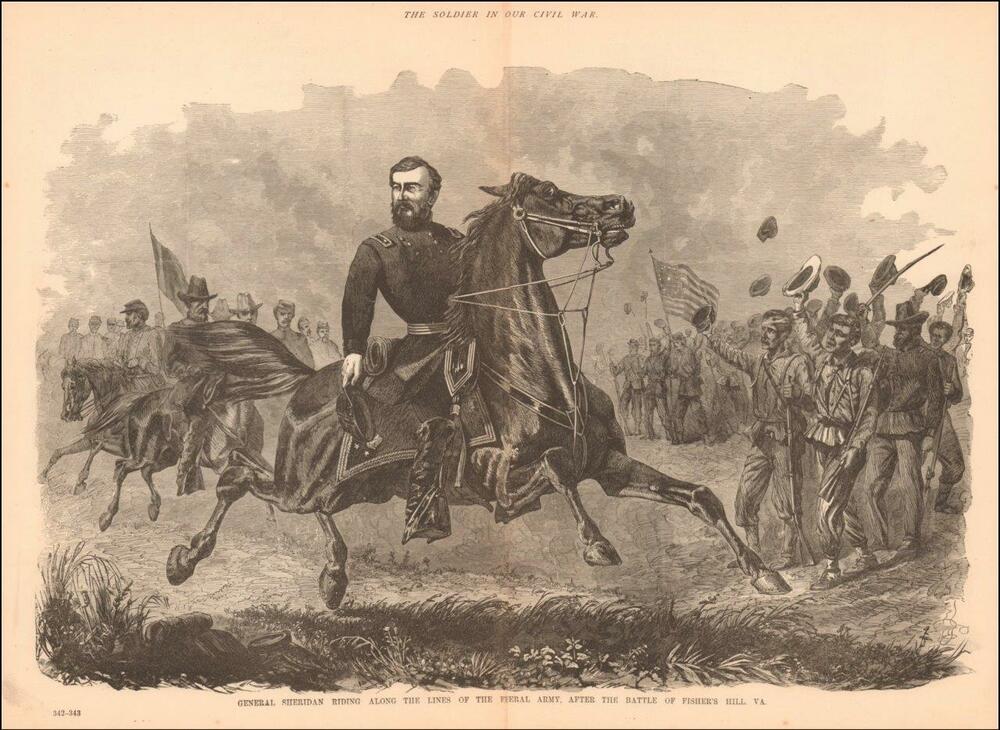|
Fisher’s Hill, a veritable fortress stretching across the Valley westward from the Massanutten – is a good place to rally from the good fight with Sheridan, whose cavalry alone outnumbers Early’s entire army. But a flank march through the woods on the mountain to the left breaks out and rolls up the lines. Ragged, starving, and lice-infested prisoners of war are packed into a long train of wagons and galloped all night down the Valley Pike to Winchester for fear of Mosby’s men. A doctor volunteers his services in “the war to make the world safe for democracy,” but he is not needed there because he has a family, and his services are more needed at home. A surgeon makes three invasions, and, building shelters for his wounded with pine boughs in the snow, refuses orders to withdraw from the Hertgen Forest and is killed by artillery fire while helping to carry a stretcher. An Infantry officer in Burma helps to repel an attack at night, and attackers fall at his shots. “Oh, no, son. You mustn’t say that. That man may have had a little boy just like you waiting for him to come home.” An Engineer officer in Vietnam, riding in a jeep and escorting a crippled bulldozer on a lowboy through a village near twilight, meets a man by the side of the road in a conical peasant’s hat, shorts, open shirt, barefooted, and feet planted solidly into the ground. For a moment their eyes meet – the eyes of the rash, parvenu West, the energy of the bright and lusty cities clamoring day and night for more steam, more steel, more trade, more wealth, and more power looking into the eyes of the eternal East, the blade of grass that pushes up through the cracked-pavement entropy of mean streets and litter-strewn alleyways, of desolate factories and drug-plagued ghettoes, of gang wars in crumbling concrete wastelands, the patient blade of grass that waits like the grave for its victory. The East does not blink, and Sheridan’s cavalry passes on. A deadly drone strike against civilians caps a withdrawal from Afghanistan, “The Graveyard of Empires.”
0 Comments
Leave a Reply. |
AuthorA native of Lynchburg, Virginia, the author graduated from the Virginia Military Institute in 1967 with a degree in Civil Engineering and a Regular Commission in the US Army. His service included qualification as an Airborne Ranger, and command of an Engineer company in Vietnam, where he received the Bronze Star. After his return, he resigned his Commission and ended by making a career as a tugboat captain. During this time he was able to earn a Master of Liberal Arts from the University of Richmond, with an international focus on war and cultural revolution. He is a member of the Jamestowne Society, the Society of the Cincinnati in the State of Virginia, the Sons of Confederate Veterans, and the Society of Independent Southern Historians. He currently lives in Richmond, where he writes, studies history, literature and cultural revolution, and occasionally commutes to Norfolk to serve as a tugboat pilot Archives
July 2023
|

